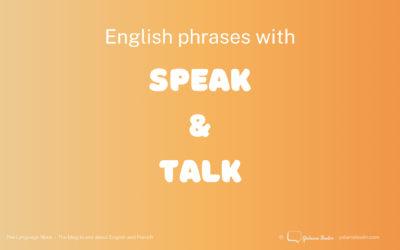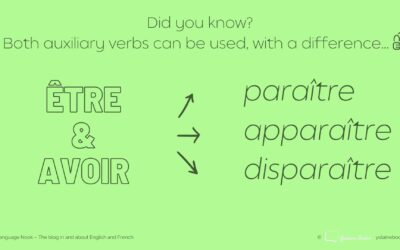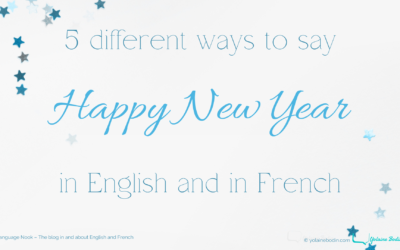The Language Nook – Le coin langues
French Immersion for Adults
Are you learning French and planning some time in France? How about spending a weekend in Nice and taking that...
English phrases with Speak and Talk
English phrases and phrasal verbs are a significant part of the language, especially in informal English. They...
20 common insect names in English and in French
Insects are everywhere. There are insects some of us love or that we don't mind, like butterflies or dragonflies, and...
savoir v. connaître
Savoir or connaître ? The confusion between both verbs is very common if you are learning French, especially if there...
Especially or specially?
Especially and specially sound similar and can easily be misused. They can be close in meaning but can also have...
Paraître, apparaître and disparaître: être or avoir verbs?
The question with the French verbs paraître, apparaître and disparaître is: what auxiliary verb should be used in...
en or dans + duration
In French, there are several possible prepositions you can use before a duration or length of time. Two common ones...
5 different ways to say Happy New Year
Happy New Year! Bonne année ! I wish you all a very Happy New Year! May 2023 make your dearest dreams come...
On the phone v. Over the phone
Everybody has and uses a phone these days. Have you ever wondered whether you should say on the phone or over the...









